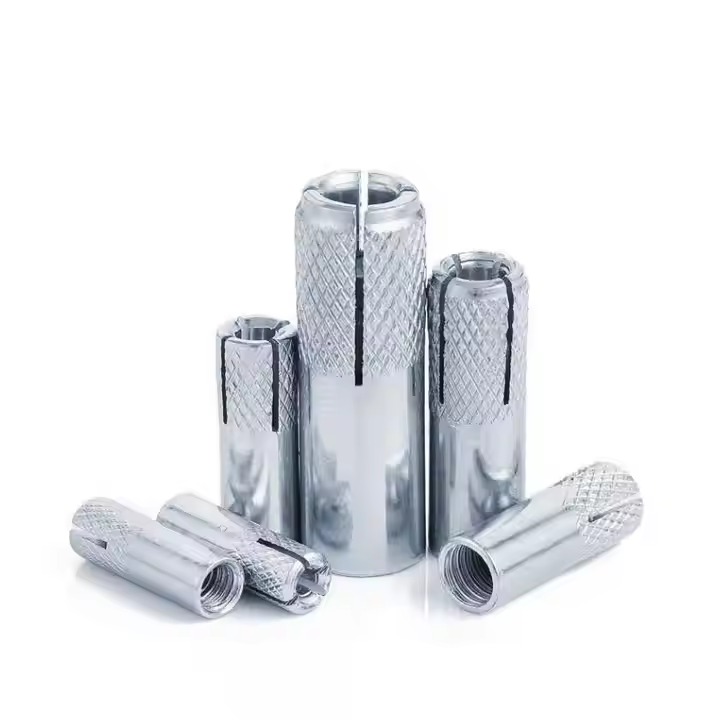

2025-10-11
Self-locking nuts are often overlooked but hold a critical role in ensuring equipment reliability. Many believe they are just a luxury or an unnecessary expense, but in reality, they are essential for effective maintenance. Let’s unpack why these small components can make a big difference.
Imagine working on a construction site, constantly dealing with vibrations and movements. You tighten the nuts and bolts at the start of the day, but by lunchtime, some have already loosened. That’s where self-locking nuts come into play. Their design prevents them from shaking loose, reducing the need for frequent retightening. In my years managing heavy machinery, I’ve seen how their use can dramatically cut down on unscheduled downtime.
The effectiveness of these nuts can be attributed to their increased frictional force, which keeps them in place under stress. It’s fascinating how such a simple solution can significantly enhance operational efficiency. For instance, in the agricultural sector, where machines are subject to constant motion, using self-locking nuts has doubled the time interval between maintenance checks.
However, it’s not just about saving time. The peace of mind knowing that equipment won’t fall apart midway through a critical operation is invaluable. The stress and potential hazards of equipment failure are significantly reduced, ensuring safer working conditions.

Initially, some might balk at the seemingly higher cost of self-locking nuts compared to standard ones. I was skeptical myself, but a deeper cost analysis often reveals savings in terms of reduced labor and less frequent replacements. Traditional nuts require regular checks and retightening, draining resources over time. By minimizing these routine interventions, self-locking variants prove to be more economically viable.
There’s also the longer lifespan of machinery to consider. Equipment maintained with self-locking nuts often has a lower wear and tear rate, meaning they don’t need to be replaced as often. This aspect is crucial for companies like Hebei Muyi Import&Export Trading Co.,Ltd, which specializes in hardware tools and fasteners. Incorporating superior products increases customer trust and business sustainability.
Moreover, many industries have adopted predictive maintenance strategies to further leverage these benefits. By embedding sensors and using advanced diagnostics, even subtle vibrations can be monitored, allowing for precise deployment of self-locking nuts where they’re needed most.
From aerospace to automotive, self-locking nuts are found in a myriad of applications. I remember a colleague in the aviation industry who shared how integral these nuts are for aircraft integrity. The stakes are high, and the need for components that offer strong, consistent performance is non-negotiable.
In automotive applications, they are crucial for securing parts that are subject to continual vibration. Recall incidents can often be traced back to inadequate fastening solutions, demonstrating the trust placed in these seemingly minor components. Interestingly, the use of these nuts also plays a role in sound engineering, reducing unwanted noise that loose nuts might otherwise cause.
It’s clear that industries seeking improved reliability and performance turn to solutions like those offered by Hebei Muyi Import&Export Trading Co.,Ltd. Their contribution through advanced fasteners helps bridge the gap between traditional methods and modern demands.

From my own experience, installing self-locking nuts does require a slight shift in technique. Unlike regular nuts, overtightening them can actually negate their self-locking ability. A calibrated torque wrench should be used to apply the proper pressure. It’s an adjustment, but one that quickly becomes second nature.
Training staff on proper handling is another critical aspect. When introducing these nuts at a manufacturing plant I once worked with, initial oversight resulted in misuse. A few targeted training sessions later, the difference in maintenance efficiency was remarkable. Ensuring your team understands the nuances can turn potential pitfalls into strengths.
Moreover, selecting the appropriate type of self-locking nut for your specific application is essential. Partnering with knowledgeable suppliers such as Hebei Muyi Import&Export Trading Co.,Ltd can simplify this process significantly. They offer a range of products optimized for different applications, ensuring you’re always using the best tool for the job.
One recurring misconception is that self-locking nuts are only for heavy machinery. Not quite. They’re versatile and suitable for any equipment subject to movement or vibration. Another is the belief that they can replace regular maintenance. They certainly reduce the frequency, but don’t eliminate the need for regular checks altogether.
To truly harness their benefits, it’s vital to view them as part of a comprehensive maintenance strategy rather than a standalone solution. This understanding helps set realistic expectations and allows for optimized maintenance schedules.
In focusing on integrating self-locking nuts effectively, businesses can achieve greater durability and operational efficiency. Achieving such balance reinforces why many experts, including myself, advocate strongly for their inclusion in standard maintenance protocols.
Please enter your email address and we will reply to your email.